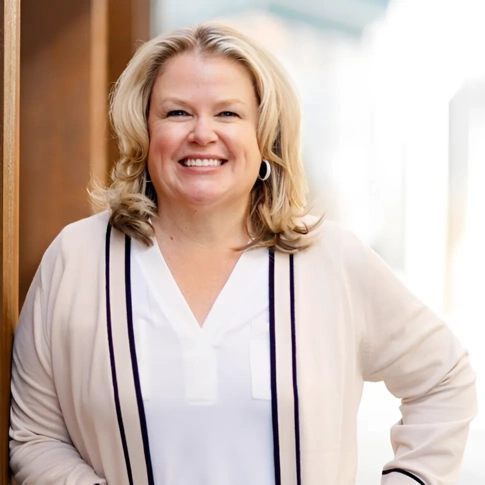North Carolina does not recognize common law marriage. Simply living together as a couple, no matter for how long, does not create a legal marriage under North Carolina law. To be legally married in North Carolina, couples must obtain a marriage license. They must also have a ceremony officiated by a licensed officiant.
However, many couples enter into a valid common law marriage in another state where it is recognized. If they then move to North Carolina, their common law marriage may still be recognized by the state. However, if the couple separates in North Carolina and decides to divorce, they must still go through the formal divorce process.
Legal Rights and Obligations for Couples Living Together
Even though North Carolina does not recognize common law marriage, couples who are living together may still have legal rights and obligations related to property, debt, and other issues. It is important for couples who are cohabitating to consider creating a cohabitation agreement. This is a legal document that outlines each person’s rights and responsibilities in the relationship. It can help protect both parties in the event of a separation or other legal issue. It is also recommended to consult with a family law attorney. They can provide guidance on cohabitation agreements and other legal issues related to unmarried couples.
How to Get Married in North Carolina
If you are planning to get married in North Carolina, here are the steps you will need to follow:
- Get a Marriage License: Both you and your partner will need to appear in person at a North Carolina Register of Deeds office. You both must provide valid identification (such as a driver’s license or passport). You will also need to pay a fee to obtain the marriage license.
- Complete the Application: You must fill out a marriage license application. It will ask for basic information such as your full name, date of birth, and current address. You will also need to provide information about your parents, including their full names and birthplaces.
- Go Through the Waiting Period: After you have applied for your marriage license, you must wait for a mandatory waiting period of 24 hours before you can get married.
- Get Married: Once the waiting period has passed, you can get married anywhere in North Carolina. You will need to have at least two witnesses present at the ceremony. The ceremony must also be performed by a licensed officiant.
- Return the License: After the ceremony, your officiant will complete the marriage license and return it to the Register of Deeds office where you obtained it. There, the license will be recorded. You can obtain a copy of your marriage certificate from the Register of Deeds office.
It is important to note that North Carolina law prohibits certain individuals from getting married. These include individuals who are already married, closely related by blood, or under the age of 14. If you have questions about getting married in North Carolina, it is ideal to consult with a family law attorney or your local Register of Deeds office for guidance.
FAQs About Common Law Marriage, North Carolina
Which states allow common law marriage in 2025?
As of 2025, the following states recognize common law marriage:
- South Carolina
- Kansas
- Colorado
- Texas
- Iowa
- New Hampshire
- Montana
It is important to note that each state has its own specific requirements for establishing a common law marriage. These rules can vary widely from state to state. Also, just because a state recognizes common law marriage, it does not mean that all couples who live together are automatically considered to be married under the law.
Does common law marriage still exist in North Carolina?
No, common law marriage does not exist in North Carolina. North Carolina abolished common law marriage in 1989. This means that simply living together as a couple, regardless of the length of time, does not create a legal marriage under North Carolina law. To be legally married in North Carolina, couples must obtain a marriage license and have a ceremony officiated by a licensed officiant.
How many years do you have to live together for common law marriage in North Carolina?
There is no length of time required for common law marriage in North Carolina because the state does not recognize it. In North Carolina, to be legally married, couples must obtain a marriage license and have a licensed officiant officiate a marriage ceremony. Simply living together, regardless of how long you have done so, does not create a legal marriage under North Carolina law.
Are you legally married after living together for 7 years?
The idea that a couple is automatically considered legally married after living together for a certain number of years is a common misconception. In reality, the concept of a “common law marriage” varies by state, and some states do not recognize it at all. In the United States, there are a few states that recognize common law marriage. However, they each have their own specific requirements. Even in those states, the length of time that a couple must live together to be considered legally married can vary.
What is it called when you live together but are not married in North Carolina?
When two people live together but are not married, it is commonly referred to as cohabitation. In North Carolina, cohabitation is a legal status that refers to two adults who are in a relationship and are living together in a domestic arrangement. This can include romantic partners, roommates, or family members.
Learn More About Making Your Marriage Recognized in North Carolina
If you need legal representation for marriage arrangements or another family law matter, we invite you to contact our firm, Lehnhardt Price Family Law. Our experienced attorneys are dedicated to helping our clients work through the complexities of family law. We can help them achieve the most optimal outcomes in their cases. Contact us today to schedule a consultation and learn more about how we can assist you with your legal needs.





